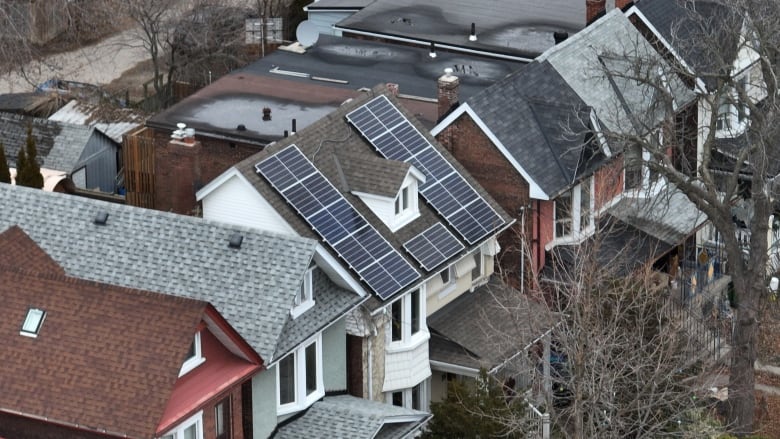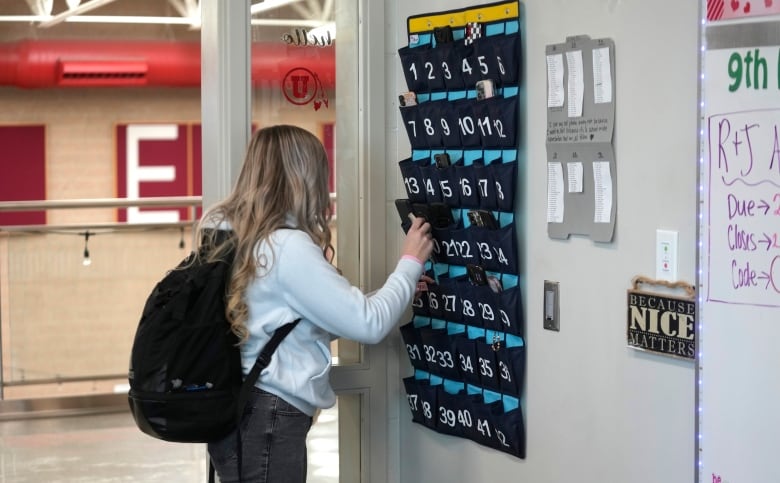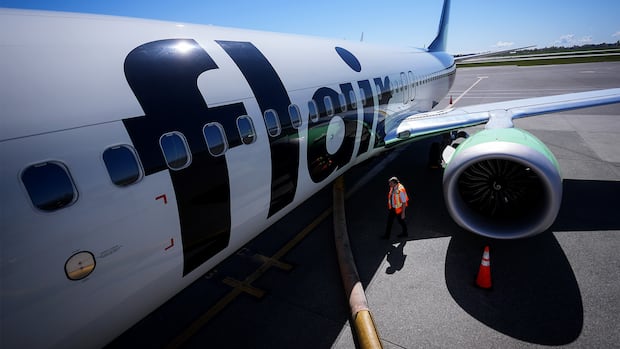
Miss something this week? Don’t panic. CBC’s Marketplace rounds up the consumer and health news you need.
Want this in your inbox? Get the Marketplace newsletter every Friday.
Rules discourage Canadians from generating more solar power than they use

Canada needs more clean power to meet growing demand, while aiming for net-zero emissions to fight climate change.
Many Canadians want to install rooftop solar panels to help. But while that can lower their electricity bills, they can’t actually get paid for it — because many jurisdictions limit the power generation of a rooftop solar system to the amount you consume, and customers can only be compensated in bill credits, not cash.
Hydro-Quebec puts it this way: “The customer’s goal must be self-sufficiency and not sales.”
Darren Chu, managing director of Calgary-based Utility Network and Partners, says similar rules in Alberta are frustrating.
“We have lots of customers who come to us and say, ‘Well, I have all this roof space and I’m only allowed to cover a small portion of it with solar panels because that’s all my consumption will allow me to do. How come I’m not allowed to export more?'” he said.
Chu’s company runs a special pricing program, called Solar Club, for Albertans with rooftop solar, offering them higher rates in summer when they have more surplus power and lower rates in winter. He wants the limits on rooftop solar generation lifted.
But why do they exist in the first place, especially given the way solar can benefit the grid? Read more
There are cellphone bans in schools around the world. Do any of them work?

From magnetic locking pouches and blocked Wi-Fi access to outright bans and legislation, schools around the world have been waging war on cellphone use for years.
In Canada, too, several provinces have introduced cellphone bans for the 2024-25 school year. The bans vary by jurisdiction, but they all have a similar aim: to restrict cellphone use in classrooms to cut down on distractions and encourage safe social media use.
But as the bans gain global momentum — along with confusion about how they will be enforced and criticism about lack of consistency — some researchers say there isn’t enough evidence on whether they’re actually effective.
“Politicians seem to say, as a very easy, nice slogan, ‘Ban the phones. Stop the phones.’ It’s catchy,” said Marilyn Campbell, a professor in the School of Early Childhood and Inclusive Education at the Queensland University of Technology in Australia who studies cellphone bans in schools.
But there’s very little actual research on whether prohibiting cellphones improves certain parameters, such as cyberbullying rates, student mental health, distraction and academic performance, Campbell told CBC News. And even when there is good research, the evidence is conflicting, she said.
“We don’t know that it’s beneficial, and we don’t know that it’s detrimental. We don’t have enough research to say one or the other,” Campbell said. “My position is that, as we don’t know, why does government insist all schools ban them?” Read more
Flair Airlines says it’s offering flights for a loonie. Experts say it needs to get real
Flair Airlines is offering $1 northbound flights to Canada starting this winter. The ultra-discount carrier says it’s a permanent deal for customers to fill empty planes, while some experts say it’s a gimmick.
Would you buy a plane ticket for a loonie? Flair Airlines hopes so.
The ultra low-cost carrier says it has launched a $1 base airfare deal for passengers flying back to Canada from sun destinations — but some experts are skeptical of whether the airline can sustain the promo.
Flair says the $1 airfares, currently reserved for northbound flights from Mexico, the U.S., Jamaica and the Dominican Republic, are now offered permanently on its website.
The airline is offering $1 flights back to Canada from airports in Cancun and Puerto Vallarta, Orlando and Las Vegas. The deal applies to flights from down south to airports in Calgary, Edmonton, Montreal, Saint John, Vancouver, Toronto and Kitchener-Waterloo, Ont., and London, Ont.
Eric Tanner, vice-president of revenue management and network planning at Flair, said the deal is a way to “give back to our customers.”
“We’re coming up on the beginning of our winter season where we stop flying quite as much domestically and we start flying quite a bit more internationally.”
He said those flights full when southbound, but that the aircraft are “quite empty” when they come back to Canada — so the deal incentivizes passengers to travel back up north. When the spring season begins, the deal will apply to southbound flights.
“These flights essentially have no opportunity cost. They are flying full south and empty north,” he said. “And so even if we put four people onto that flight who otherwise wouldn’t have taken it, that’s great. We’re happy about that.”
Some experts, however, are calling it a “gimmick.” Read more
What else is going on?
Toronto workers have longest commutes in Canada: StatsCan
Statistics Canada says more Canadians commuting, average commute time returns to pre-pandemic era
Tesla asked Canada to reduce tariffs on its EVs made in China, Reuters source says
This week, Trudeau announced a 100 per cent surtax on all EVs made in China and sold in Canada
Park’N Fly reveals data breach affecting 1 million customer files
Company says it has taken steps to improve network security after July breach, and that “no payment information was compromised”
Marketplace needs your help!

Do you have a family doctor but have trouble getting an appointment? Are you having to rely on walk-in clinics when you’d rather see your own doc? Get in touch with us at [email protected].

Are you looking for the latest in business news? You’ll want to subscribe to this newsletter, too.
Mind Your Business is your weekly look at what’s happening in the worlds of economics, business and finance. Subscribe now.
Catch up on past episodes of Marketplace on CBC Gem.
